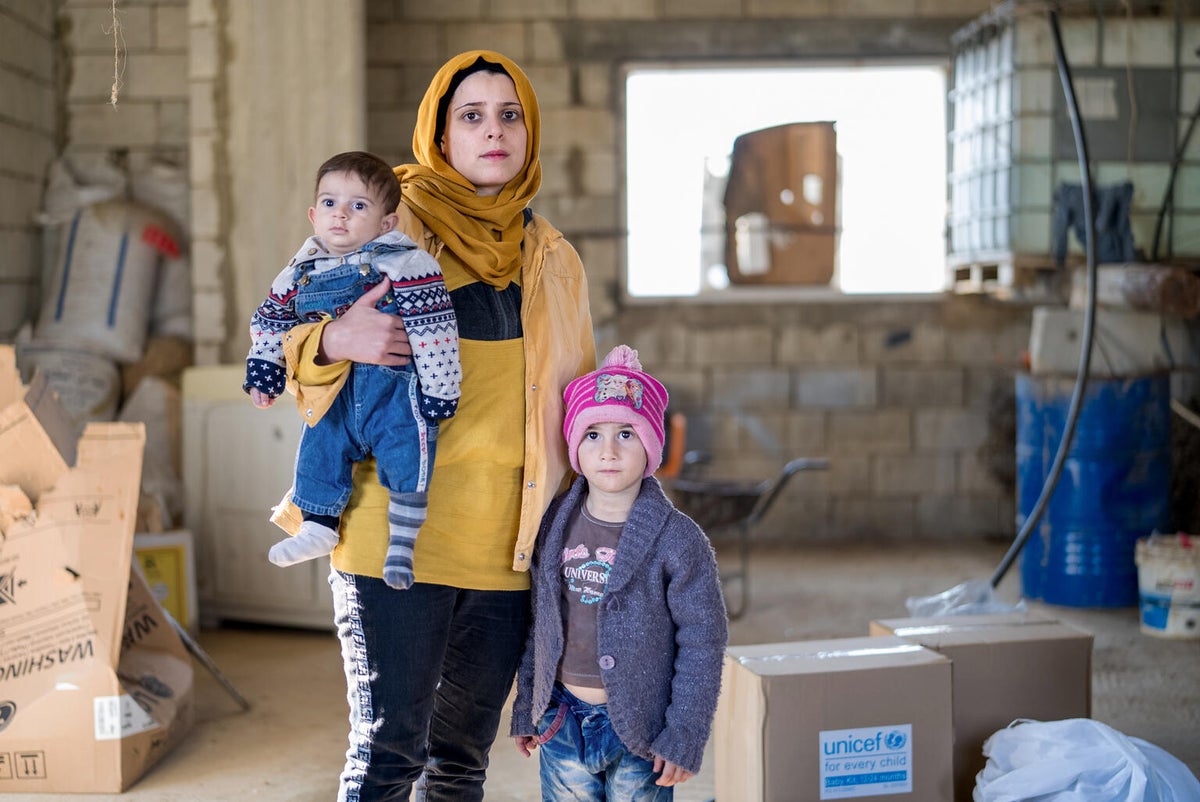The ceasefire in Lebanon brings hope to 1.9 million children.
After enduring months of heavy airstrikes, the ceasefire in Lebanon aims to end over a year of conflict, which has reportedly killed more than 240 children, injured around 1,400, and disrupted the lives of countless others.
Before conflict escalated in the region, Lebanon was grappling with multiple challenges, including an education crisis, food poverty and a health system that was on the brink of collapse. More recently, children have been displaced, and their homes, schools and the essential services they rely on have been damaged or destroyed.
Restoring these vital lifelines is crucial to ensure that children can recover and thrive. UNICEF is assisting with early recovery efforts and are ready to scale up our response, providing resources and expertise to rebuild water systems, primary health care, schools and other services children rely on.
We need your help to be there for every child as they start to rebuild their lives after months of devastating loss.

Millions of children around the world are facing devastating losses and uncertain futures caused by ongoing wars and conflicts.
In places like Lebanon, Sudan, Gaza, Ukraine, Myanmar and many others, humanitarian emergencies are devastating the lives of children. They're losing their homes, schools and loved ones, and a lack of access to food, water and healthcare is causing immense challenges.
In all conflicts, children suffer first and most.
As the latest crisis in Lebanon unfolds, children, who are already enduring so much, are facing utter devastation. Before the 23 September attacks, Lebanon was experiencing compounding challenges. With high unemployment rates, children were leaving school early to help supplement household income, creating an education crisis. Over 60 per cent of children are currently living in food poverty, and the health system is on the verge of collapse after years of being overstretched. And since the conflict between Israel and State of Palestine escalated in October 2023, there has been an increase in hostilities at the Lebanon and Israel border.

Your gift will make a difference.
We can’t stop emergencies from happening, but we can ensure that more children survive. That means being on the ground, delivering lifesaving support during emergencies and assisting with long-term support in the years after a crisis to help restore vital programs and ensure every child is healthy, educated and safe from harm.
By partnering with local organisations, UNICEF ensures that the needs and priorities of affected communities are addressed and that they have a voice in the design and implementation of the response.
How will my donation help children in crisis?
When you donate to UNICEF, you're helping us to support families with safe drinking water, lifesaving nutrition and healthcare, and access to education. UNICEF will continue to adapt and respond to the cross-border conflict as the situation evolves.
- $90 could help provide 18,000 water purification tablets, each able to create up to five litres of clean drinking water.
- $160 could help provide 420 high-energy emergency food rations for children.
- $360 could help provide hygiene and dignity kits for five families - each packed with emergency supplies including soap, water containers, cleaning products and reusable menstrual products.

- 80¢on average, 80 cents to every dollar spent for the past three years went directly to helping children in need, including long-term programs, emergency response and community education.
- 20¢on average, 14 cents to every dollar spent for the past three years went to essential fundraising costs that helped us generate more impact for children, 6 cents went to admin costs, such as keeping your personal data safe.
How do we use each dollar donated?
Your gift will support children impacted by this emergency, and crisis around the world. If you choose to donate monthly or should we receive more funds than is needed for this emergency, your gift will support UNICEF's work where the need is greatest. Find out more about our financial management in our annual report.
When war breaks out or disaster strikes, you can make a difference.
UNICEF is on the ground, providing urgent assistance to children and their families. But we can’t do it alone. We need your help to always be there. No matter what.




